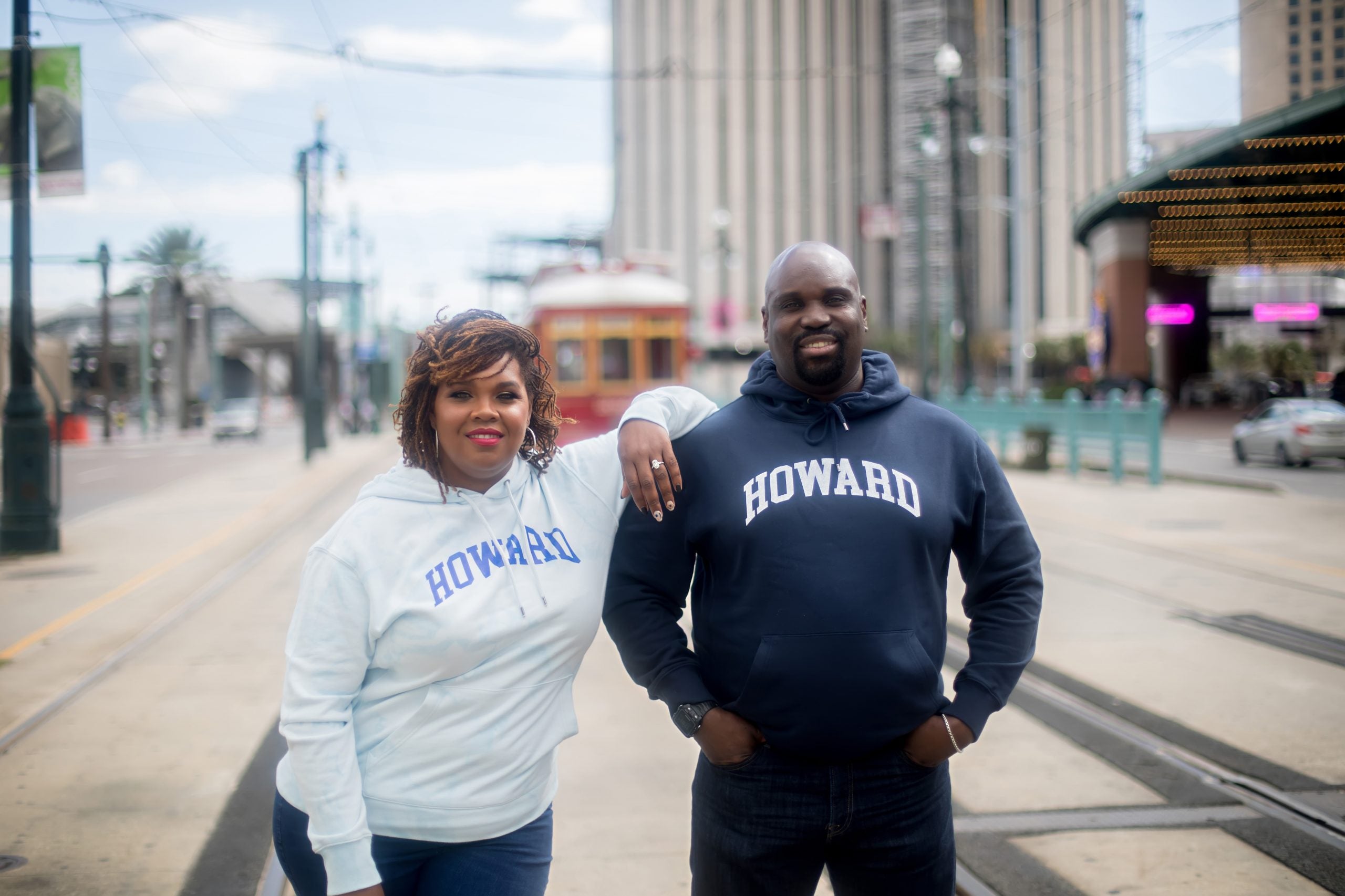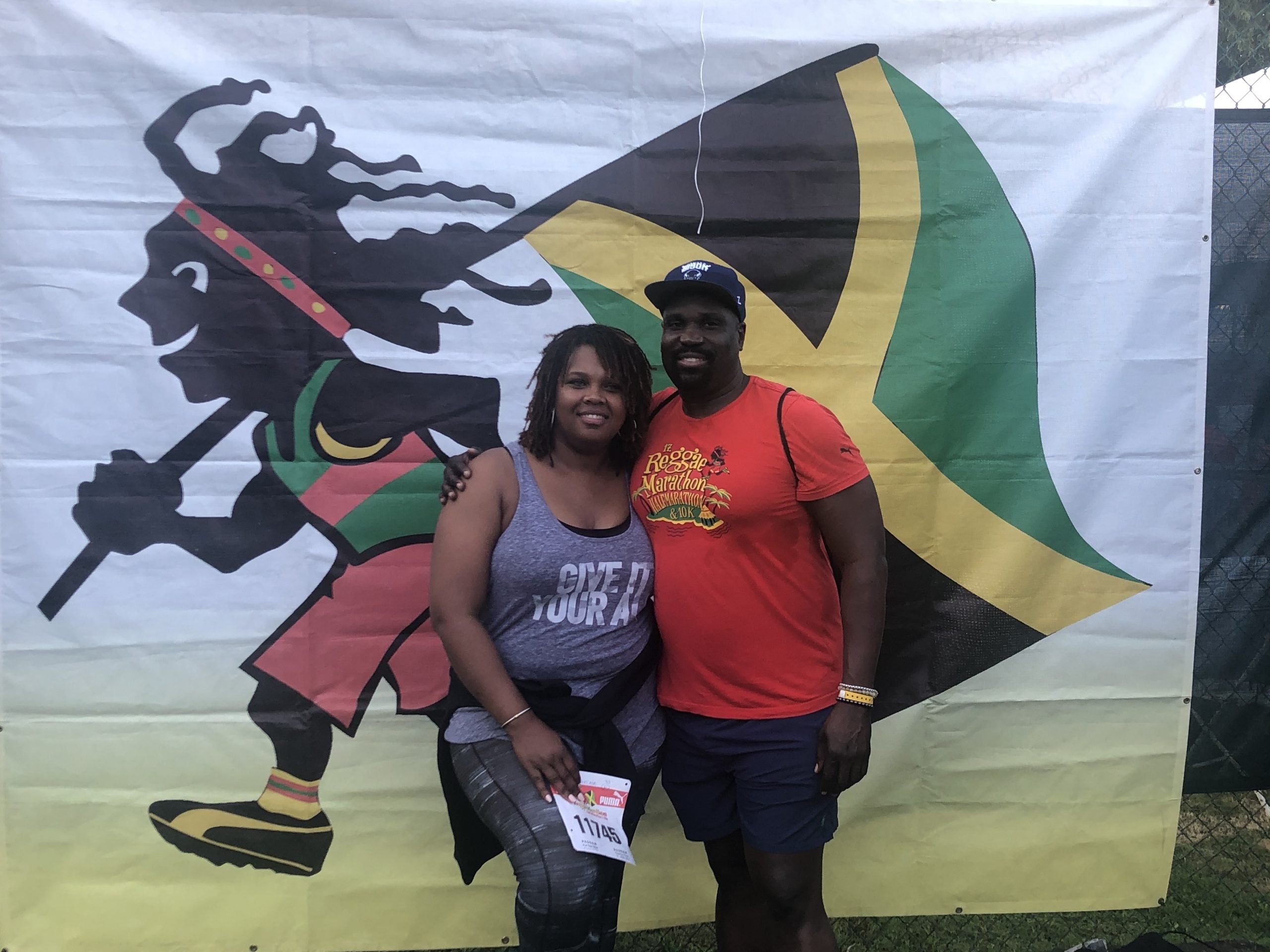
For some, traveling this summer after three (plus) months of quarantine has to happen by any means necessary — whether for leisure, work or simply to visit family. For Howard University alums Takema Robinson and her fiance Havanah Llewellyn, that was exactly the plan when Jamaica announced reopening plans on June 15.
For Llewellyn, a native of Jamaica, traveling to the destination has been a routine experience since childhood, and even especially now with them both having business operations (housing) on the island, and having to travel back for work. But after new protocols and restrictions were implemented following the pandemic, the experience traveling from Louisiana to Jamrock was nothing that they could have ever anticipated.
So they sought to document it for other people to understand.
With many concerned about what travel —especially international travel — will look like in this “new normal,” the couple became “Insta-famous” for their 12-minute Instagram video detailing their recent journey to Jamaica, and how the experience measures up to U.S. prevention measures.
For those choosing to travel, the couple offers a few additional tips on how you can safely travel to Jamaica — or any international country that has currently opened its borders to American tourists.
Do your research on travel protocols and policies.
Llewellyn says that the first thing anyone must do before traveling is to “verify what the country’s policy is in terms of letting people in and availability to move around.” For instance, the couple shared that Jamaica has an online registration system that grants you access to the country — it is tied to the airlines. He says, “You cannot board a plane without first presenting the document (which is printed out with a barcode) or utilizing your phone. Please make sure that you have enough time to apply and get a response to what the travel policies are.”
Determine what restrictions you may or may not have once you’re on the island/in the country.
This especially will help in identifying whether it’s even worth it to travel. Robinson and Llewellyn are intimately involved in the protocols of Jamaica due to their status as Airbnb hosts (with hosted properties on the island), so finding out this information was not only in their best interest, but critical to understanding how they could travel, and how they would be able to welcome guests back to their home. Llewellyn shares that it’s important to “understand what you are allowed to do on the ground and where you can go and what you can do.”

Understand that self-quarantine is inevitable at some point once you land.
If you’re traveling to a destination that requires COVID testing upon arrival (like most Caribbean countries, including Jamaica and Antigua), you’ll have to await your results until you can move around the island. “You can’t leave the resort property until your results come back,” shares Robinson.
“They report those results to the hotel, so the hotel personnel knows and informs you of the results of your test.If you test negative, you can then move around the resilient corridor, but you can’t come further into the population. If you are positive, then you have some options: 1) you go to a state quarantine facility (which is just another hotel, where they have all the positive cases, or 2) you have to quarantine at your own expense someplace else.”
While many have their own opinions on whether travelling for leisure makes sense with the pandemic still in full force, the couple offer their own words of advice. “It’s personal preference,” says Llewellyn. “There’s always a risk of being in the airport and what that looks like. If you have been quarantined for three months, and you want to get away and you want to go to a beach and do some of those things, I think it is worth it from that perspective — from an experience. There’s an experience side of things, there’s a safety side of things. Each person has to make that assessment for what the safety risks are for them.”
Robinson however, disagrees. “It is not worth it if you have pre-existing conditions. It is not worth the risk — point, blank, period. We had to make a calculated risk for us and our family because we had to get here for business. I’m never going to say that it is worth it, if it depends on your health condition.”
The couple also noted that traveling in the U.S. presents a bigger risk because of the lack of detailed protocols being put in place and maintained from our leadership.